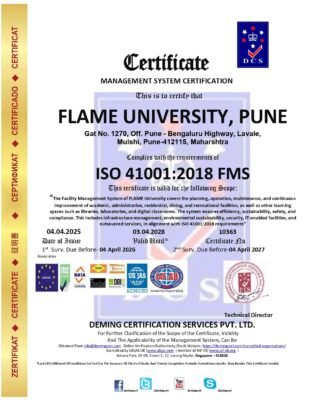ISO 29993 Learning Services Provider (LSP)
ISO 29993:2017 is an international standard that sets out service requirements for Learning Services Providers (LSPs) operating outside formal education systems. It’s designed to ensure quality, transparency, and effectiveness in lifelong learning services such as vocational training, corporate education, and other non-academic learning programs.
🧠 Key Features of ISO 29993
- Scope: Applies to learning services not part of formal education (e.g., schools, colleges, universities).
- Target Audience: Learners and sponsors (e.g., employers or organizations purchasing training).
- Delivery Modes: Covers face-to-face, technology-mediated, and blended learning formats.
- Focus Areas:
- Defined learning goals
- Evaluation of learning outcomes
- Interaction between learners and providers
📋 Structure of the Standard
ISO 29993 includes 14 clauses covering:
- General information and terms
- Proposal development and pre-service information
- Needs analysis and learning design
- Service delivery and facilitator qualifications
- Assessment, monitoring, and evaluation
- Invoicing and transparency
✅ Benefits of Certification
- Enhances credibility and trust in learning services
- Aligns all elements of the learning process for better outcomes
- Provides a framework for continuous improvement
- Offers international recognition of quality and reliability
If you’re a training provider or organization offering non-formal education, ISO 29993 can be a powerful tool to demonstrate your commitment to excellence.
How to get ISO 29993 certification step-by-step
Here’s a clear, step-by-step guide to help you pursue ISO 29993 certification as a Learning Services Provider (LSP):
🛠️ Step-by-Step ISO 29993 Certification Process
1. Understand the Standard
- Obtain and study the ISO 29993:2017 document.
- Familiarize yourself with its clauses, especially those related to service delivery, learner interaction, and evaluation.
2. Gap Analysis
- Compare your current learning services against ISO 29993 requirements.
- Identify gaps in areas like course design, facilitator qualifications, learner feedback, and documentation.
3. Internal Preparation
- Develop or update your Learning Management System (LMS) documentation.
- Train staff on ISO 29993 principles and procedures.
- Implement necessary changes to align with the standard.
4. Choose a Certification Body
- Select an accredited certification body (e.g., TÜV NORD, URS Holdings).
- Submit an application and receive a proposal outlining scope, cost, and timeline.
5. Audit Preparation
- Complete a pre-audit questionnaire provided by the certifier.
- Prepare documentation and evidence of compliance.
- Schedule the audit and agree on the audit plan.
6. Certification Audit
- The audit is conducted on-site or remotely.
- Auditors assess your processes, documentation, and service delivery.
- Non-conformities (if any) are documented and must be addressed.
7. Award of Certificate
- If compliant, you receive the ISO 29993 certificate.
- You can now use the certification logo in promotional materials.
8. Surveillance Audits
- Annual audits ensure continued compliance.
- You must report any major organizational changes to the certifier.
9. Recertification
- Every 3 years, a full audit is conducted to renew certification.
📌 Tips for Success
- Maintain clear records of learner feedback and outcomes.
- Regularly review and improve your learning services.
- Ensure transparency in proposals and service descriptions.
Costs and typical timeline for ISO 29993 certification
Here’s a breakdown of the costs and timeline typically involved in obtaining ISO 29993 certification for Learning Services Providers (LSPs):
💰 Estimated Costs
Costs vary based on organization size, complexity, and certifier, but here’s a general range:
| Component | Estimated Cost (INR) | Notes |
|---|---|---|
| Gap Analysis & Consulting | ₹50,000 – ₹2,00,000 | Optional but helpful for first-time applicants |
| Documentation & Training | ₹30,000 – ₹1,50,000 | Includes process mapping, SOPs, and staff training |
| Certification Audit | ₹75,000 – ₹2,50,000 | Paid to the accredited certification body |
| Surveillance Audits | ₹40,000 – ₹1,00,000/year | Conducted annually or biannually during the 3-year cycle |
| Recertification Audit | ₹75,000 – ₹2,00,000 | Every 3 years |
These are ballpark figures for India. International providers may charge more depending on scope and travel.
⏳ Typical Timeline
| Phase | Duration | Description |
|---|---|---|
| Preparation & Gap Analysis | 2–4 weeks | Internal review and planning |
| Implementation | 4–8 weeks | Process alignment, documentation, training |
| Audit Scheduling | 1–2 weeks | Depends on certifier availability |
| Certification Audit | 2–5 days | On-site or remote assessment |
| Certificate Issuance | 1–2 weeks | After successful audit |
| Total Time to Certification | 2–3 months | From start to finish |
🧩 Factors That Affect Cost & Time
- Number of learning programs and delivery modes
- Geographic spread (single site vs. multi-site)
- Existing quality systems (e.g., ISO 9001)
- Readiness of documentation and staff















Reviews
There are no reviews yet.